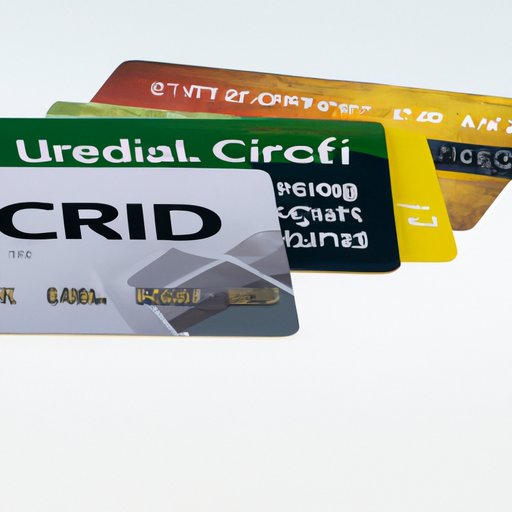
I. Introduction
Building good credit is essential for achieving financial stability, but it can be difficult without access to credit cards. While credit cards provide a convenient way to establish credit, they may not be an option for some people due to credit history, income, or personal preferences. Fortunately, there are alternative options available for building credit without a credit card. This article will explore some of those options and provide strategies for building credit effectively.
II. Alternative credit-building options
One way to build credit without a credit card is by using other forms of bill payments to demonstrate financial responsibility. Paying rent on time is an example of this technique since timely rental payments can appear on credit reports. Making on-time payments for utilities and phone bills can also reflect positively on credit reports. Taking out a credit-builder loan is another option since it can establish a track record of timely payments on a lower level of debt compared to credit card balances. To build credit successfully, it is essential to adopt a consistent payment schedule and avoid late payments, which can negatively impact credit scores.
III. Emphasize the importance of credit reports
Credit reports play a critical role in determining creditworthiness. They contain information about a person’s credit history, including payment history, public records, and personal details. Credit reports also incorporate non-credit information, such as rent payments, which can provide another way to build credit without a credit card. It’s essential to review credit reports regularly to verify their accuracy, particularly if using non-credit information to establish good credit.
IV. Secured credit cards
Secured credit cards can help people who cannot qualify for or do not want traditional credit cards. They require a cash deposit, which typically serves as collateral for the card, setting the credit limit. Secured cards can be an effective option when building credit while minimizing the risk of accumulating high debt. When selecting a secured credit card, it’s wise to comparison shop to find the one with the best terms and fees. As with other forms of payment, using secured credit cards responsibly is crucial for building good credit history.
V. Becoming an authorized user
Another way to build credit without a credit card is by becoming an authorized user on someone else’s credit card. This requires being added to the account and allows you to benefit from their payment history as it reflects on your credit report. Be aware that being added as an authorized user does not give access to the account to make charges. The primary cardholder can also remove the authorized user at any time. To ensure the primary account holder’s payment history appears on your credit report, it’s essential to ask upfront about how the credit bureau reports an authorized user and whether it reflects positively on your score.
VI. Credit counseling
People who struggle to build credit or have credit problems can use non-profit credit counseling services to identify strategies to manage debt, build credit, and become more financially stable. In many cases, credit counseling can lead to better ways of managing debt and establishing good credit. When searching for a credit counseling service, it’s best to seek out certified or accredited counselors with a strong track record of success.
VII. Managing debt
People who do not have credit cards can still have debt, such as student loans or car payments. Managing these loans effectively can significantly impact credit scores, even without credit cards. Keeping payments on time, avoiding late payments, and striving to pay down debt can improve credit scores over time. Enrolling in autopay or creating a budget to ensure that all expenses are accounted for can help keep debt-management efforts on track.
VIII. Dos and don’ts
Building credit without credit cards requires responsible financial decision-making. Paying bills on time is crucial, even in situations where bills may not affect credit reports directly. Avoid predatory lenders who charge high fees and interest rates, and be wary of any offers that sound too good to be true. Be cautious of co-signing for loans, as these can impact credit reports if payments are missed or late. Be wary of taking on more debt than you can handle. When in doubt, seek out professional financial advice.
IX. Conclusion
Building credit without credit cards is achievable. It requires careful consideration of alternative options, being diligent about making on-time payments and monitoring credit reports. Using strategies such as secured credit cards, becoming an authorized user, and enrolling in credit counseling can also be effective ways to establish credit history. It’s essential to take control of your credit score and devise a plan for building credit to increase financial stability and create a brighter financial future.





